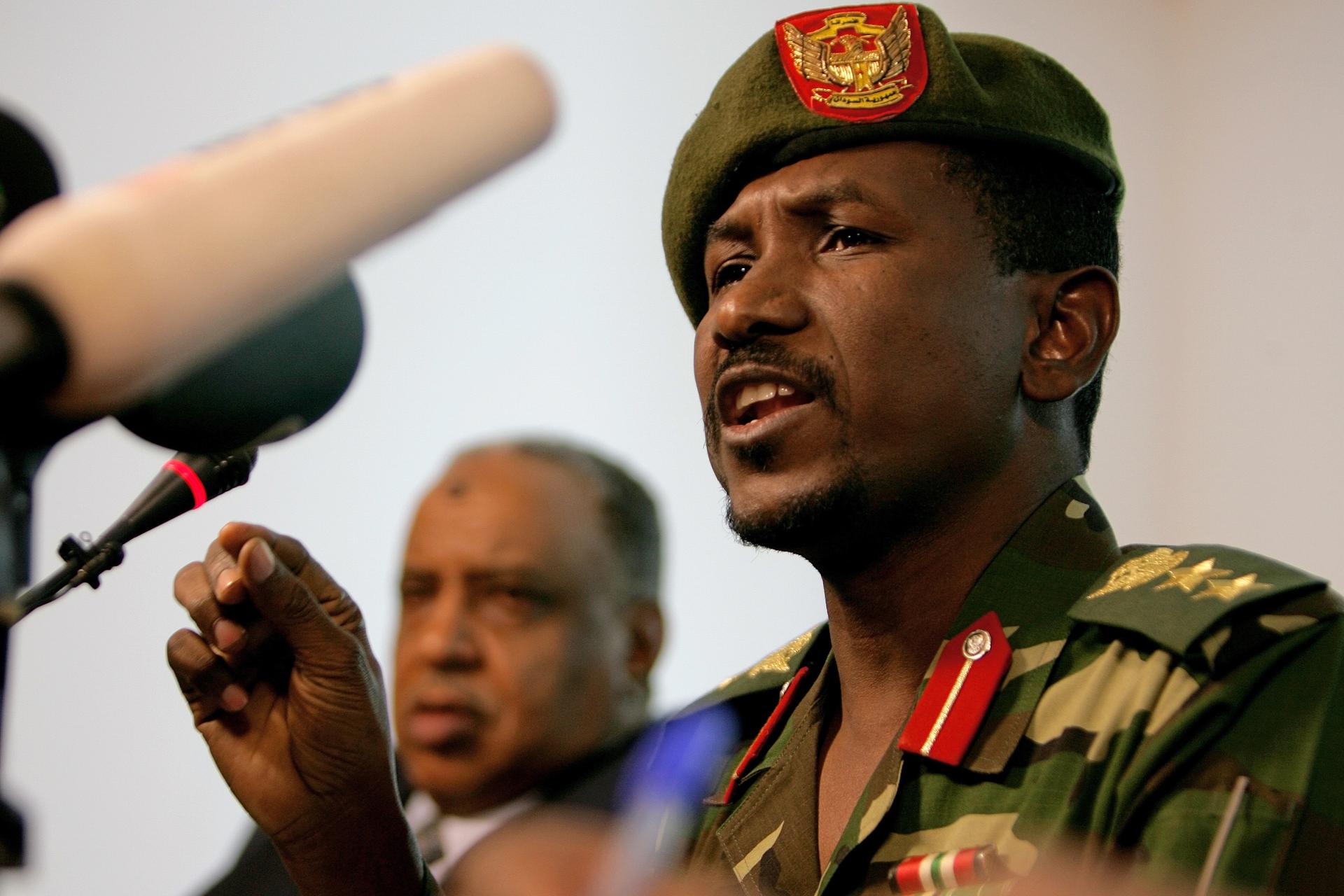Sudan says it killed Khalil Ibrahim, leader of Darfur’s main rebel group
Sudanese army spokesman Sawarmi Khaled Saad speaks during a press conference in Khartoum on Dec. 25, 2011. Sudan’s army killed key rebel leader Khalil Ibrahim and 30 of his Darfur-based troops in a battle which was still continuing, officials said, after rebels announced an advance towards the capital.
Sudan's armed forces said Sunday that they had killed the leader of Darfur's main rebel group.
The death of Khalil Ibrahim in a battle in North Kordofan state on Sunday would, The LA Times wrote, inflict "what could prove a severe blow to rebels who have waged a nearly decade-long war against the Arab-led government in Khartoum."
Ibrahim was leader of the Darfur-based Islamist group Justice and Equality Movement, the most heavily armed of the groups fighting the Sudanese government yet, according to an Agence France-Presse profile, lacking "the broad ethnic base of other tribal-based movements."
Even so, the group had "thousands of battle-hardened fighters and links to dissatisfied Islamist elements within the government in Khartoum," according to The New York Times, and was believed to be its "gravest threat."
JEM had recently teamed up with other groups in a coordinated rebellion against the Sudanese government, the Times wrote.
Ibrahim, meantime, had "mounted a daring and near-successful raid that took his fighters from the sun-blasted deserts of Darfur to the doorstep of the capital, Khartoum."
Ibrahim, the Associated Press wrote, was ironically a member of the movement that brought Sudan's Arab-dominated government to power.
Ibrahim was part of the National Islamic Front, which seized power in a bloodless military putsch in 1989. Like many of the movement's members, Ibrahim, a physician, returned to Sudan from Saudi Arabia after the coup and was soon after appointed state minister for Darfur, the vast western desert region of the country.
Years later, having grown frustrated with the continued marginalization of ethnic African Darfurians, Ibrahim joined a group of dissidents — most of them from the Darfur region — who published the "Black Book," a scathing exposure of the Arab domination of politics and resources in Sudan.
A JEM spokesman confirmed Ibrahim's death to AFP, but disputed the claim by Sudanese military officials that he was killed in a shootout, instead saying he was killed in an air strike.
News of Ibrahim's death came three days after anti-government forces said they had begun advancing on the capital Khartoum, AFP reported.
The JEM announced on Thursday through its London-based spokesman that its forces were advancing from Darfur eastward towards Khartoum.
Sudanese troops have been fighting rebel forces on a poorly defined southern border since the South became independent in July after a two-decade civil war. Each country now accuses the other of supporting rebels within their territories.
Ibrahim is believed to have recently reached out to the leaders of South Sudan for help in his battle against Khartoum. However, the Times reports, " it was not clear how eager the Southern Sudanese were to get embroiled in another war after fighting Khartoum for decades."
However, as GlobalPost's Andrew Meldrum wrote earlier this month, that hasn't stopped President Omar al-Bashir's regime "attacking its own people in the border states of South Kordofan and Blue Nile," as well as starving and bombing the minority groups there because they support opposition parties.
After South Sudan became independent in July, P Bashir says he is fighting rebel groups but the United Nations charges that he is attacking civilians.
Hollywood actor George Clooney has been activist in appealing for food aid to prevent the Sudan regime from starving its own people, a halt in aerial bombing and a stepping up of diplomatic pressure on Khartoum.
